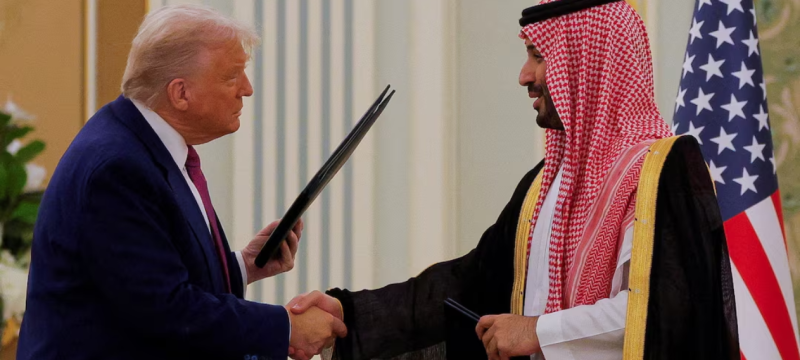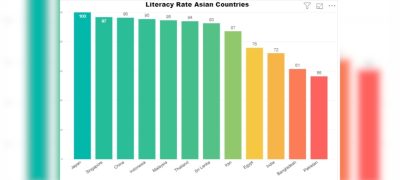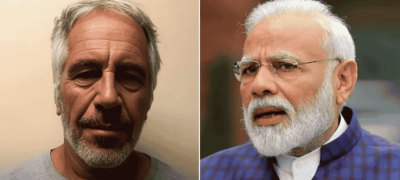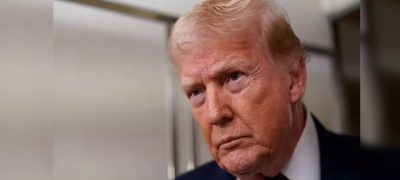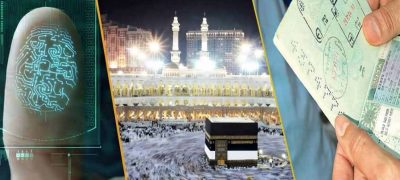US President Donald Trump’s Gulf tour has made significant waves in global diplomacy, marking a dramatic shift in American foreign policy. The tour kicked off in Riyadh, where Trump announced the lifting of longstanding sanctions on Syria, calling it a new opportunity for the war-torn nation. The economic embargo, imposed in response to the Assad regime’s crackdown during the Syrian Civil War, will now be lifted, a move heavily influenced by Saudi Crown Prince Mohammed bin Salman. Trump’s remarks in Riyadh also signaled the beginning of stronger economic ties between the US and the Gulf, highlighted by a monumental $142 billion arms deal with Saudi Arabia.
Trump’s announcement regarding Syria was hailed by Syria’s Foreign Minister Asaad Shibani as a “new start” for the country, especially following the ousting of President Bashar al-Assad and the formation of a new transitional government. This policy shift opens the door for much-needed international capital to aid in Syria’s reconstruction, which has been a major hurdle due to the sanctions. Meanwhile, the arms deal between the US and Saudi Arabia represents one of the largest defense agreements in recent history and is part of a larger economic pact, with potential investments reaching up to $1 trillion.
ALso Read: Trump Faces Conservative Backlash Over Reported Qatari Jet Gift
The former president’s visit, which is seen as a continuation of his 2017 diplomatic tour, is also a strategic move to strengthen US ties with key Gulf nations amid rising global competition in defense and technology. Notably, business leaders like Elon Musk and Sam Altman accompanied Trump, signaling growing US-Gulf collaboration, particularly in AI and technology sectors. Trump also suggested that Saudi Arabia might join the Abraham Accords, a peace agreement that normalised relations between Israel and Arab states during his first administration, though Crown Prince Mohammed has emphasized that any such move would depend on resolving the Gaza conflict.
Trump’s visit stands in stark contrast to the cooler reception faced by President Joe Biden in Riyadh in 2022, and it underscores Trump’s strong relationship with the Saudi royal family. The tour will also include stops in Qatar and the UAE, where Gulf leaders have already committed to significant investments in the US, further cementing the growing economic interdependence between the two regions.


